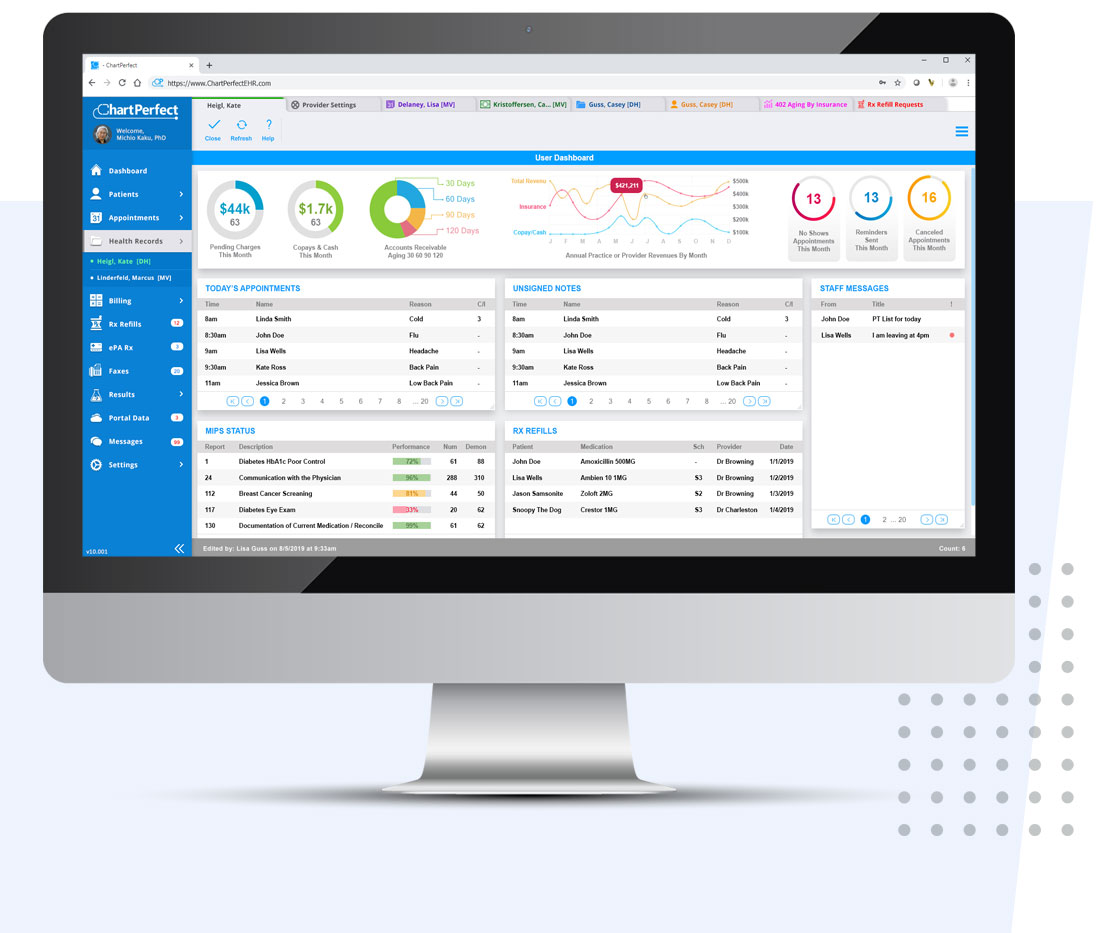In today's rapidly evolving healthcare landscape, improving patient experience has become a key focus for providers aiming to improve the care delivery and satisfaction. As patients increasingly prioritize quality interactions and streamlined processes, healthcare organizations are turning to innovative solutions to meet these expectations. One such solution is practice management software, that plays a vital role in transforming the operational side of healthcare.
By combining various administrative functions, practice management tools allow healthcare providers to concentrate on what truly matters—their patients. From appointment scheduling and billing to patient communication and record management, this software simplifies the complex workflows that often hinder effective patient engagement. Consequently, healthcare professionals can dedicate more time to building meaningful relationships with patients and ensuring a positive experience throughout a care journey.
Benefits of Practice Management Software
PM software simplifies admin tasks, enabling healthcare providers to focus more on patient care instead of dealing with administrative work. It streamlines appointments, invoicing, and patient data management, which reduces mistakes and cuts down on time. This efficiency not only enhances the workflow inside medical settings but also causes higher satisfaction among patients, as patients experience shorter wait times and more organized services.
Furthermore, practice management software fosters improved communication among healthcare professionals. With integrated systems that enable quick access to patients' information and treatment history, healthcare professionals can collaborate more efficiently. This real-time exchange of information ensures that all parties in a patient’s treatment is on the same page, ultimately resulting in more informed decision-making and enhanced patient outcomes.
Another significant advantage is the informative analytics capabilities offered by practice management tools. These systems can monitor KPIs, patient demographics, and service utilization, allowing healthcare facilities to identify patterns and opportunities for enhancement. By analyzing this information, medical practitioners can make tactical decisions that enhance efficiency in operations and the overall patient experience, resulting in a more successful medical practice.
Key Features to Enhance Patient Experience
One of the features of practice management software is scheduling appointments. This functionality allows patients to schedule, modify, or cancel appointments online, providing ease and reducing the likelihood of missed appointments. By enabling self-service options, clinics can improve patient satisfaction, as individuals prefer the ability to manage their time without having to deal with phone calls during office hours. Additionally, scheduled reminders can significantly minimize appointment-related stress, ensuring that patients are kept informed and prepared for their visits.
A further critical aspect of practice management software is patient communication. Tools that facilitate secure messaging between patients and healthcare providers boost engagement and simplify the flow of information. Patients can ask questions, receive news, and share concerns, encouraging a more two-way and personal healthcare experience. This mutual communication cultivates trust and allows healthcare professionals to tackle issues promptly, leading to better outcomes and a deeper patient-provider relationship.
To sum up, billing and insurance management features simplify the often complex financial aspect of healthcare. By providing easy-to-understand billing information and assisting with insurance claims, practice management software minimizes patient anxiety regarding costs. When patients understand what to expect in terms of expenses and can effortlessly go through billing processes, their overall experience improves significantly. This clarity not only enhances patient satisfaction but also facilitates timely payments, supporting healthcare practices in the long run.
Implementation Strategies for Health Services
To successfully adopt practice software in clinical contexts, it is vital to initiate with thorough strategy and involvement from all relevant stakeholders. This means engaging physicians, support personnel, and technology specialists early in the project. Gathering insights from those who will be utilizing the application ensures that the implemented software meets the specific needs of the practice. A structured plan for deployment, along with clearly defined roles and responsibilities, helps to facilitate the transition and reduce disturbance in daily operations.
Education is another essential component of a robust implementation strategy. Adequate training sessions should be arranged to train staff with the new system's functionalities and functionalities. Using a mix of hands-on workshops, online tutorials, and help documentation can enhance skill and capability among users. medicloudmed.ch is essential to provide continuous support after the primary sessions to address any questions or difficulties that arise as staff adapt to the latest platform.
Finally, it is critical to evaluate and review the functionality of the practice management software post-rollout. Gathering feedback from users allows for constant refinement and adjustments to the system as required. Tracking performance metrics can help the organization assess the success of the software in enhancing patient experience and workflow efficiency. Ongoing reviews help ensure that the management solutions remain aligned with evolving industry demands and continue to provide advantage to both users and providers.

